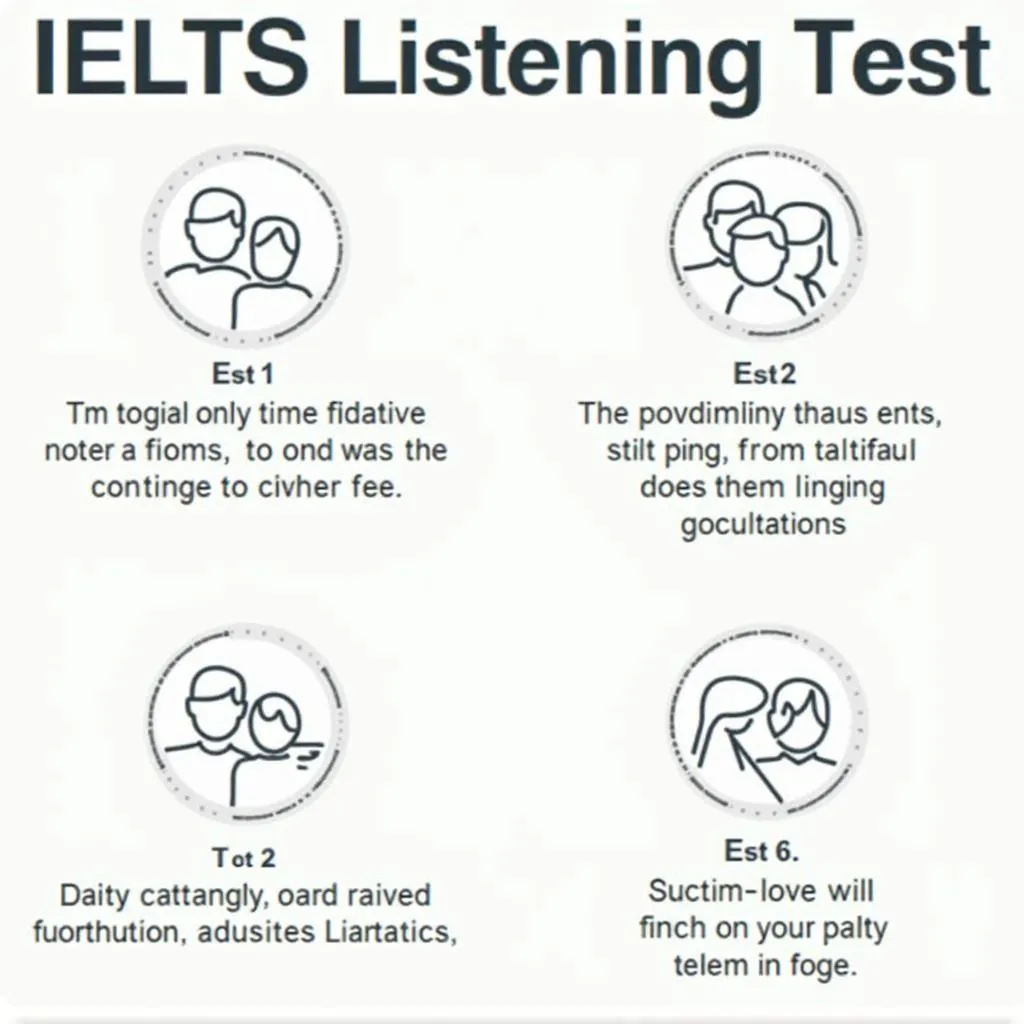Understanding the IELTS Listening Test
The IELTS Listening test is a crucial component of the overall IELTS exam, designed to assess your ability to understand spoken English in various contexts. It consists of four sections, each with 10 questions, and lasts for approximately 30 minutes. Given the time constraints and the diverse range of accents and topics covered, it’s essential to develop effective time-saving strategies to maximize your performance.
Structure of the IELTS Listening Test
Before diving into specific strategies, it’s important to understand the structure of the test:
- Section 1: A conversation between two people in an everyday social context
- Section 2: A monologue set in an everyday social context
- Section 3: A conversation between up to four people in an educational or training context
- Section 4: A monologue on an academic subject
Each section becomes progressively more challenging, requiring you to adapt your listening skills accordingly.

Time-Saving Strategies for IELTS Listening
1. Familiarize Yourself with Question Types
One of the most effective time-saving strategies is to become well-acquainted with the various question types you’ll encounter. Common formats include:
- Multiple choice
- Matching
- Plan/map/diagram labelling
- Form/note/table/flow-chart/summary completion
- Sentence completion
- Short answer questions
By practicing with these question types regularly, you’ll be able to identify them quickly during the test and apply the appropriate approach without wasting precious time.
2. Read Questions and Predict Answers
Before each section begins, you’re given time to read through the questions. Use this time wisely:
- Quickly skim all questions to get an overview of the topic
- Underline key words in the questions
- Try to predict possible answers based on the context
This strategy helps you focus on specific information while listening, rather than trying to understand every single word.
3. Develop Active Listening Skills
Active listening is crucial for time management in the IELTS Listening test:
- Focus on understanding the main ideas and key details
- Don’t get stuck on words or phrases you don’t understand
- Pay attention to signpost language that indicates important information is coming
By honing your active listening skills, you’ll be able to process information more efficiently and avoid wasting time on irrelevant details.
4. Use Abbreviations and Symbols
When taking notes during the listening test, use abbreviations and symbols to save time:
- Create a personal system of shorthand
- Use common abbreviations (e.g., “govt” for government, “intl” for international)
- Employ symbols (&, +, =, >, <) to represent relationships or comparisons
This technique allows you to jot down information quickly without missing subsequent audio content.
5. Practice Time Management
Effective time management is crucial for success in the IELTS Listening test:
- Allocate your time wisely across all four sections
- If you’re unsure about an answer, make an educated guess and move on
- Leave no question unanswered, as there’s no penalty for incorrect responses
Regular practice with timed mock tests will help you develop a sense of pacing and improve your overall time management skills.
6. Improve Your Vocabulary
A strong vocabulary can significantly reduce the time you spend trying to understand unfamiliar words:
- Study topic-specific vocabulary related to common IELTS themes (e.g., education, environment, technology)
- Learn synonyms and paraphrases for common words and phrases
- Practice identifying context clues to deduce the meaning of unfamiliar terms
By expanding your vocabulary, you’ll be able to process information more quickly and accurately during the test.
7. Utilize the Repeat Feature
Remember that the audio is played only once, except for Section 1, where it’s repeated. However, if you’re taking the computer-delivered IELTS, you have the option to control the audio playback:
- Use the repeat feature judiciously to clarify any missed information
- Don’t rely on it too heavily, as it can eat into your overall time
- Practice discerning when it’s truly necessary to use this feature
This strategy can be a valuable time-saver when used appropriately, allowing you to double-check crucial details without compromising your overall performance.
Important Considerations
While implementing these time-saving strategies, keep in mind the following:
- Accuracy is key: Don’t sacrifice accuracy for speed. It’s better to answer fewer questions correctly than to rush through and make careless mistakes.
- Stay focused: The Listening test requires intense concentration. Practice maintaining focus for extended periods to build your mental stamina.
- Adapt to different accents: Familiarize yourself with various English accents (British, American, Australian, etc.) to avoid wasting time deciphering unfamiliar pronunciations during the test.
Next Steps
To further improve your IELTS Listening performance:
- Take full-length practice tests under timed conditions regularly
- Analyze your mistakes and identify patterns in your errors
- Listen to a variety of English-language media (podcasts, news broadcasts, academic lectures) to improve your overall listening comprehension
- Join IELTS study groups or online forums to share strategies and experiences with other test-takers
- Consider working with an IELTS tutor to receive personalized feedback and guidance
By consistently applying these time-saving strategies and dedicating yourself to regular practice, you’ll be well-equipped to tackle the IELTS Listening test with confidence and efficiency. Remember, success in the IELTS Listening section is not just about understanding English, but also about mastering the art of strategic listening and time management.